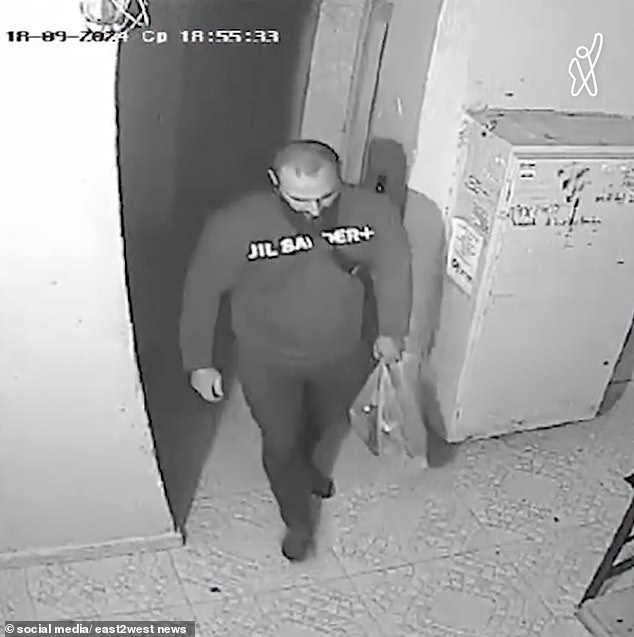Transgender actress and influencer stabbed to death in Georgia, day after anti-LGBT law passed
A prominent transgender model, actor and influencer has been brutally stabbed to death in Georgia.
Kesaria Abramidze, 37, was murdered the day after parliament in the former Soviet state passed a law banning LGBT propaganda, sparking outrage.
She suffered more than 50 stab wounds in the attack, which took place at her own home in the capital Tbilisi last night.
A male suspect, named as Beka Jaiani, 26, was detained at the city’s airport as he was reportedly planning to leave Georgia, and is said to have known the star.
CCTV footage reportedly shows him waiting at the elevator in her apartment building, and then running down the stairs in the same building less than ten minutes later.
Kesaria Abramidze, 37, was killed the day after parliament in the former Soviet state passed a law banning LGBT propaganda

The victim was a well-known and popular figure in Georgia after undergoing sex reassignment surgery in 2014

Kesaria’s murder is the third high-profile killing of a transgender woman in Georgia in recent years
Neighbors heard screams and went to her apartment, where they found her blood-soaked body.
The victim was a well-known and popular figure in Georgia after undergoing sex reassignment surgery in 2014.
She represented Georgia at Miss Trans Star International in 2018 and had over half a million followers online.
Georgian President Salome Zurabishvili, who opposes the new anti-LGBT laws, responded to news of Kesaria’s death: “A horrible murder! A denial of humanity!
‘Only this can bring our society to its senses… Hopefully, the murder of this beautiful young woman will at least make us more human and Christian.’
Before undergoing gender reassignment surgery, Kesaria had her genetic material frozen abroad. She wanted to have a child.
Her murder is the third high-profile killing of a transgender woman in Georgia in recent years.

A male suspect, identified as Beka Jaiani, 26, was detained at the city’s airport as he apparently planned to leave Georgia, reports said
The killing came after the country joined Russia in passing laws banning same-sex marriage, same-sex adoption, gender-affirming care, public support for LGBTQ+ relationships and people, and their portrayal in the media.
Pride events and public displays of the rainbow flag are banned, and films and books are censored.
The tough new laws face a veto from pro-Western President Zourabichvili, but this could still be overcome in a later vote in parliament.
The title of the bill is ‘Protection of family values and minors’.
Human rights watchdog Social Justice Center (SJC) said in its statement following Kesaria’s killing: “There is a direct link between the use of hate speech in politics and hate crimes.

Kesaria posted a message on her Instagram story yesterday, just hours before her murder last night

Kesaria represented Georgia at Miss Trans Star International in 2018 and had over half a million online followers
“It has been almost a year since the Georgian Dream government aggressively used homo-/bi-/transphobic language and cultivated it with mass propaganda,” it said.
‘It is certain that the policy of hate has serious consequences – intimidation of LGBTI people, their marginalization and violence against them. The case of the murder of Kesaria Abramidze cannot be observed without this general context.’
The British Embassy in Tbilisi said of the new law: ‘The United Kingdom is deeply concerned about the adoption at third reading of the legislative package on family values and the protection of minors.
‘This package undermines fundamental human rights, including the right to freedom of expression and assembly, and risks further stigmatising and discriminating against a section of the Georgian population.’
